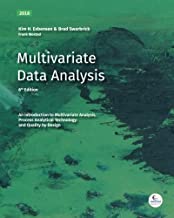Theory and Practice of Sampling of Heterogeneous Materials & Processes (TOS)
(3-day comprehensive course; abbreviated introductory formats available for 1, or 2 days)
Course objective:
This course provides a comprehensive introduction to the Theory of and Practice of Sampling (TOS) for stationary as well as dynamic lots (process sampling). TOS is presented as a framework set of six Governing Principles (GP) and four Sampling Unit Operations (SUO) with which to secure representative samples and analytical results in all of science, industry, society, business and for regulatory oversight. The goal is to make all attendees able to design, implement and use fully only representative procedures and equipment.
For whom:
This course is aimed at all personal involved with sampling: scientists, process engineers, process operators, process technicians, quality officers, management – including personal with responsibility for all splitting, sub-sampling and sample preparation in the laboratory. The course outlines the critical connections to process engineering, process technology, Process Analytical Technologies (PAT) – and to multivariate data analysis (chemometrics). It is even important that also management, economists, controllers and the legal department has a modicum of TOS-competence since management has to make critical decisions about process status, product specification, laboratory sample adequacy and many other attributes based on valid and reliable analytical results.
Technical understanding:
The common characteristic of all naturally occurring, technological and industrial materials and processes is heterogeneity f.ex. regarding raw materials, food, feed, rocks, mineralisations, ores, concentrates, alloys, environmental samples, mixtures and aggregates, interim and final process and manufacturing products, which all have a much more complex spatial distribution that what can be encompassed by classical statistics – a lot can manifestly not be viewed as but a collection of analytical results. Instead TOS provides a rational approach to lot heterogeneity introducing the sampling errors that are involved when sampling heterogeneous materials and processes – as well as the necessary tools for their evaluation, elimination and/or minimization, otherwise adding unnecessary to the total measurement uncertainty (MU).
The principles of TOS are generic and apply to sampling of all materials and lot types, at all locations and at all scales. TOS provides professional competence on how to identify faulty, inefficient or suboptimal sampling procedures and equipment – and offers the necessary tools for rational counteraction. In particular, the sampling bias has a fundamentally different nature than the analytical bias, which negates all attempts of ‘bias-correction’. Instead TOS provides practical ways to achieve “sampling correctness” (unbiasedness) by informed design and application to the generic representative sampling process. After the critical primary sampling step, correct (unbiased) mass reduction (splitting) in the subsequent sub-sampling in the laboratory also needs to be 100% compliant with TOS in order to ensure valid analysis analytical results. It is often unknown, or is willfully neglected, that the Total Sampling Error (TSE) is by far the dominating contribution to the total Measurement Uncertainty (MU), 10-25-50 X larger than the Total Analytical Error (TAE).
Course deliverables:
The course overview gives full insight into how to guarantee that all primary sampling, and subsequent sub-sampling (splitting) and sample preparation before analysis is documentable as representative (procedures, equipment, maintenance). The course has a special focus on setting up experiment assessment procedures to characterise lot heterogeneity (replication experiments and variographic experiments), and how to use variographic analysis for process understanding and process measurement system validation.
Literature documentation
The course is based on the new textbook: “Introduction to the Theory and Practice of Sampling” (2020) and the world’s first standard dedicated exclusively to representative sampling, DS 3077 (2013)
These two snapshots outline the course scope with a technical – and a business ‘angle’
The course also provides an extensive in-depth literature portal:
Esbensen, K.H. & Julius, L. (2013) “DS 3077 Horizontal—a new standard for representative sampling. Design, history and acknowledgements”, NIR news 24, 8, p. 16–19.
Esbensen, K.H. (2015) Materials Properties: Heterogeneity and Appropriate Sampling Modes. J. AOAC Int. vol. 98, pp. 269-274. http://dx.doi.org/10.5740/jaoacint.14-234
Esbensen, K.H., Wagner, C. (2014). Theory of Sampling (TOS) vs. Measurement Uncertainty (MU) – a call for integration. Trends in Analytical Chemistry (TrAC) vol 57, 93-106.
Esbensen, K.H. & Julius, L.P. (2009). Representative sampling, data quality, validation – a necessary trinity in chemometrics. in Brown, S, Tauler, R, Walczak,R (Eds.) COMPREHENSIVE CHEMOMETRICS, Wiley Major Reference Works, vol. 4, pp.1-20. Oxford: Elsevier Petersen, L, C. Dahl, K.H. Esbensen (2004).
Representative mass reduction in sampling – a critical survey of techniques and hardware. Chemometrics and Intelligent Laboratory Systems, vol. 74, Issue 1, p. 95-114
Esbensen, K.H. & Mortensen, P. (2010). Process Sampling (Theory of Sampling, TOS) – the Missing Link in Process Analytical Technology (PAT). in Bakeev, K. A. (Ed.) Process Analytical Technology. 2.nd Edition. pp. 37-80. Wiley. ISBN 978-0-470-72207-7
Minnitt, R.C.A. & Esbensen, K.H. (2017) Pierre Gy’s development of the Theory of Sampling: a retrospective summary with a didactic tutorial on quantitative sampling of one-dimensional lots. TOS Forum 7, p. 7-19. doi: 10.1255/tosf.96
Esbensen, K.H, Paoletti, C, Theix, N. (2015) (Eds) Journal AOAC International, Special Guest Editor Section (SGE): Sampling for Food and Feed Materials. pp. 249-320 http://ingentaconnect.com/content/aoac/jaoac/2015/00000098/00000002
Esbensen, K.H., Paoletti, C. & Minkkinen, P. (2012). Representative sampling of large kernel lots – I. Theory of Sampling and variographic analysis. Trends in Analytical Chemistry (TrAC), 32 pp.154-165
Minkkinen, P., Esbensen, K.H. & Paoletti, C. (2012). Representative sampling of large kernel lots – II. Application to soybean sampling for GMO control. Trends in Analytical Chemistry (TrAC), 32 pp. 166-178
Esbensen, K.H., Paoletti, C. & Minkkinen, P. (2012). Representative sampling of large kernel lots – III. General considerations on sampling heterogeneous materials. Trends in Analytical Chemistry (TrAC), 32 pp. 179-184


